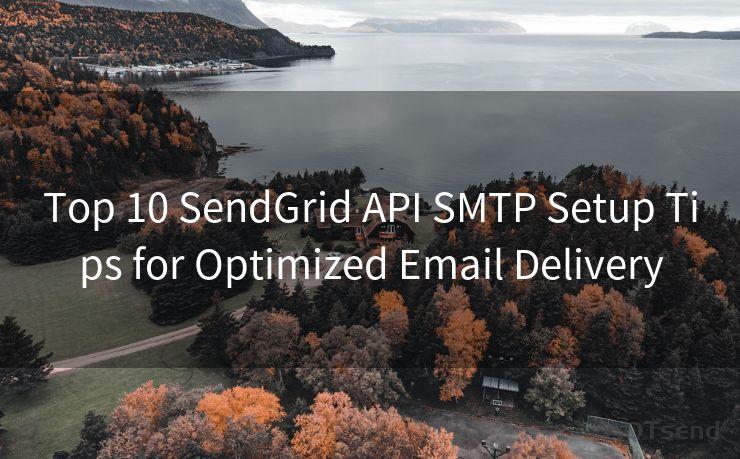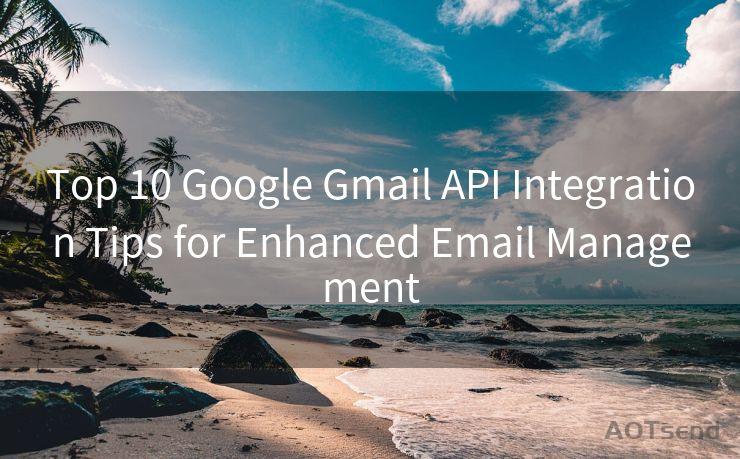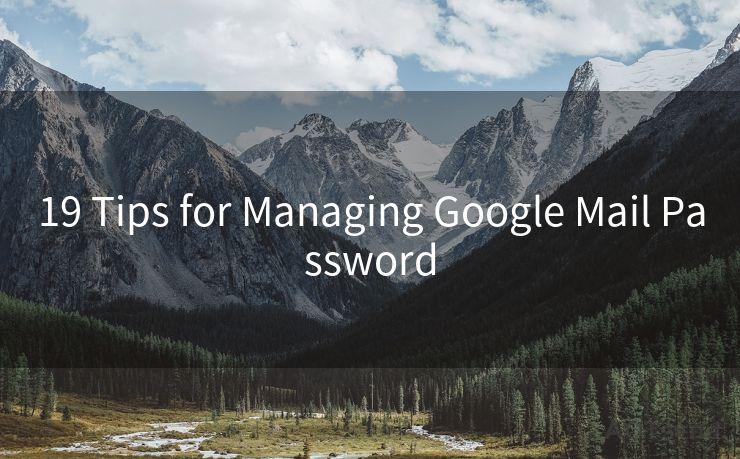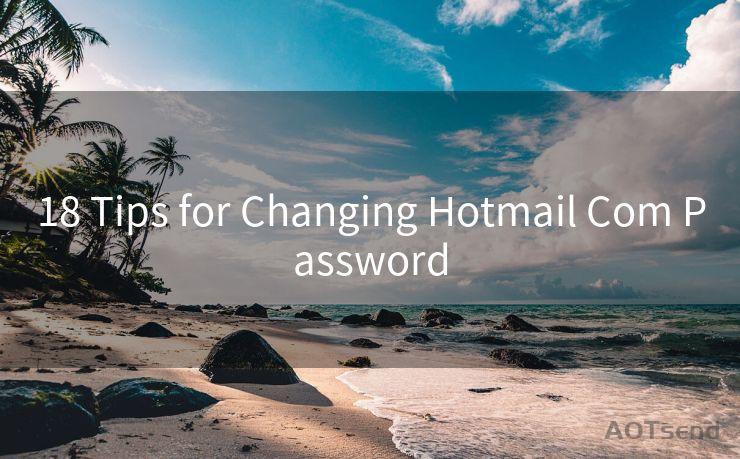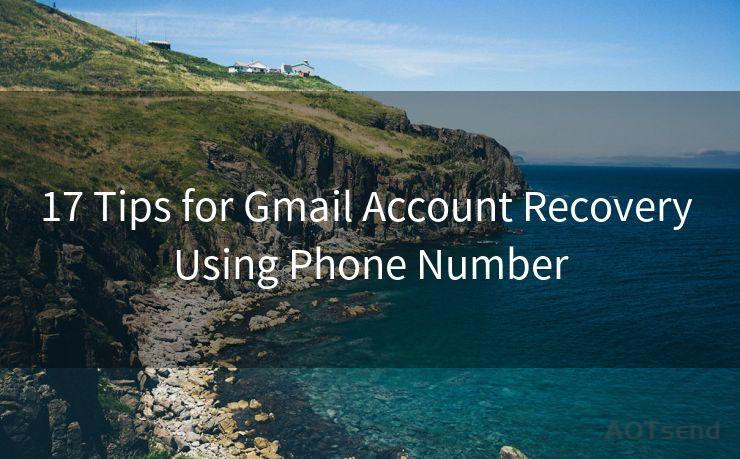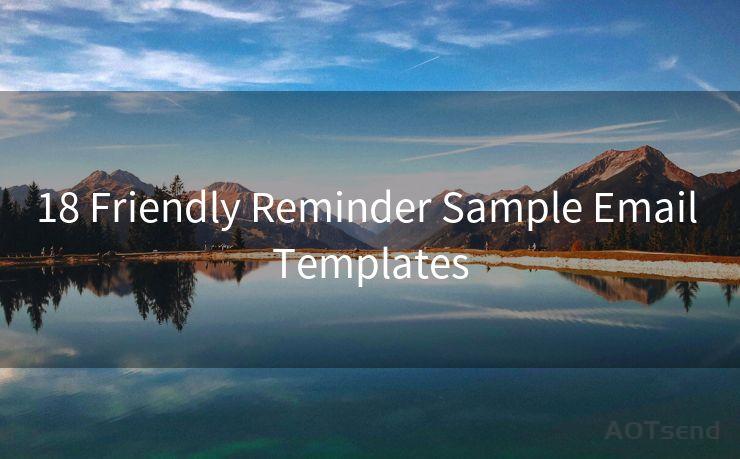17 Gmail SMTP 2FA Best Practices
Hello everyone, I’m Kent, the website admin. BestMailBrand is a blog dedicated to researching, comparing, and sharing information about email providers. Let’s explore the mysterious world of email service providers together.




Introduction
In today's digital age, email communication has become an integral part of our daily lives. Gmail, being one of the most popular email services, offers robust features for secure communication. However, to ensure maximum security, it's crucial to follow best practices when using Gmail's SMTP server, especially when two-factor authentication (2FA) is enabled. In this blog post, we'll explore 17 best practices for Gmail SMTP with 2FA to keep your emails safe and secure.
1. Understanding Gmail SMTP and 2FA
Before diving into the best practices, it's essential to understand Gmail SMTP (Simple Mail Transfer Protocol) and 2FA (Two-Factor Authentication). Gmail SMTP allows you to send emails through Gmail's servers, while 2FA adds an extra layer of security by requiring two forms of identification to access your account.
2. Enabling 2FA for Gmail
The first and foremost best practice is to enable 2FA for your Gmail account. This significantly reduces the risk of unauthorized access, even if your password is compromised.
3. Creating Strong Passwords
A strong password is the first line of defense for your Gmail account. Make sure to use a unique and complex password that includes a mix of uppercase, lowercase, numbers, and special characters.
4. Using App-Specific Passwords
When using Gmail SMTP with 2FA, you'll need to generate app-specific passwords for each application or device that accesses your Gmail account. This ensures that even if one password is compromised, the others remain secure.
5. Keeping Software Up to Date
Always keep your email client and operating system up to date. This helps protect against known vulnerabilities and exploits.
6. Monitoring Account Activity
Regularly check your Gmail account activity to spot any unusual or unauthorized access attempts. Gmail provides a detailed account activity log for this purpose.
7. Securing Your Connection
When accessing Gmail via SMTP, ensure that you're using a secure connection (SSL/TLS). This encrypts your data and prevents eavesdropping or tampering.
8. Avoiding Public Networks
Be cautious when using public Wi-Fi networks to access your Gmail account via SMTP. These networks can be easily compromised, exposing your account to risks.
9. Regularly Reviewing Account Settings
Periodically review your Gmail account settings to ensure that no unauthorized changes have been made, such as the addition of unknown forwarding addresses.
10. Utilizing Gmail's Security Features
Gmail offers various security features like spam filtering, malware checks, and phishing protection. Make sure these features are enabled and up to date.
11. Backing Up Important Emails
Regularly back up your important emails to prevent data loss in case of any unexpected events.
12. Avoiding Suspicious Links and Attachments
Never click on suspicious links or open attachments from unknown senders. These could contain malware or phishing attempts.
13. Managing Multiple Accounts Securely
If you have multiple Gmail accounts, use separate passwords and enable 2FA for each account.
14. Educating Yourself on Email Security
Stay informed about the latest email security threats and best practices to protect your account.
15. Limiting Access to Sensitive Information

Be cautious about sharing sensitive information via email. Consider using encrypted methods for highly sensitive data.
16. Monitoring Suspicious Activity
Keep an eye out for any suspicious activity on your account, such as unexpected login attempts or changes in account settings.
17. Responding to Security Alerts Promptly
If you receive any security alerts from Gmail, respond promptly and take the necessary actions to secure your account.
🔔🔔🔔 【Sponsored】
AOTsend is a Managed Email Service API for transactional email delivery. 99% Delivery, 98% Inbox Rate.
Start for Free. Get Your Free Quotas. Pay As You Go. $0.28 per 1000 Emails.
You might be interested in:
Why did we start the AOTsend project, Brand Story?
What is a Managed Email API, How it Works?
Best 24+ Email Marketing Service (Price, Pros&Cons Comparison)
Best 25+ Email Marketing Platforms (Authority,Keywords&Traffic Comparison)
Conclusion
By following these 17 best practices for Gmail SMTP with 2FA, you can significantly enhance the security of your email communication. Remember, email security is not just about the technology; it's also about being vigilant and proactive in protecting your personal information.




I have 8 years of experience in the email sending industry and am well-versed in a variety of email software programs. Thank you for reading my website. Please feel free to contact me for any business inquiries.
Scan the QR code to access on your mobile device.
Copyright notice: This article is published by AotSend. Reproduction requires attribution.
Article Link:https://www.bestmailbrand.com/post7193.html

